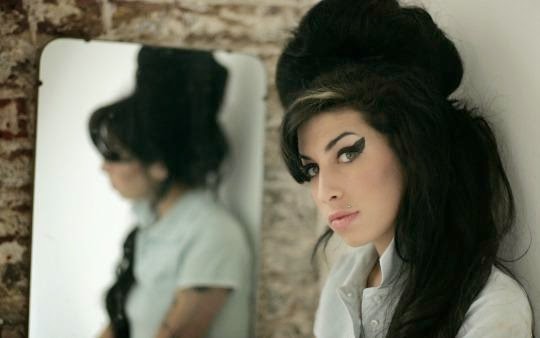Midway through the documentary Amy, which had its first Cannes press screening on Saturday, we hear from an addiction counselor who’d once interviewed the late singer Amy Winehouse. He sums up what has already become frightfully clear: “She was a very vulnerable woman.”
A hurdle for any documentarian wanting to tell the story of Winehouse, who died in 2011 at the age of 27 from alcohol poisoning, was that her professional life and catastrophic downfall are, on the surface at least, so well known. The precocious North London jazz singer became a pop superstar after her 2006 smash album, Back to Black, drawing comparisons to iconic vocalists like Sarah Vaughn, Billie Holiday, and Shirley Bassey. But even before her success, she was struggling with the addiction problems and bulimia that would eventually help kill her.
What director Asif Kapadia (Senna) has done for his often poignant and well-made movie, which is screening out of competition, is unearth even more: More archival footage and more previously unseen photographs and more interviews with the people who knew her, relying heavily on the memories of two childhood friends, Juliette Ashby and Lauren Gilbert, and Winehouse’s first manager, Nick Shymansky. (The press notes cite about 100 interviews in all for the film.) There’s a priceless video clip that opens Amy: low-grade footage of a teenaged Winehouse and her friends clowning around at a 14th birthday party, breaking into a ragged “Happy Birthday to You,” only for her pals to fall silent as she finishes the song alone with her already otherworldly voice. What emerges is a Winehouse who’s tough, magnetic, and sassy, and already quite sure of herself musically, if not personally.
There’s surprisingly little about her childhood, but the notes the movie hits are pointed: Winehouse came from a working-class home with an overwhelmed mother and a mostly absent father who left the family when Amy was young. (Winehouse’s estate initially cooperated with the documentary, but last month her family publicly dissociated themselves from it, saying in a statement that it contains “basic untruths,” and that “there are specific allegations made against family and management that are unfounded and unbalanced.”) We also see glimpses of her toxic relationship with former husband Blake Fielder-Civil, the man who inspired much of the heartbreak in Back to Black, but who also introduced her to crack and heroin.
Kapadia makes a supreme effort to keep the focus on Winehouse’s musical performances and there are a number of compelling moments, including footage of her in the studio recording “Back to Black.” We hear her pristine vocals all by themselves, then the soundtrack kicks in with the swinging thump of the now-familiar Dap-Kings backing tracks, before dropping out again to hear her work out the song’s final word. But those moments are overwhelmed by the sadder ones, like the moment she won the 2008 Grammy for Record of the Year and was celebrating at a packed studio in London. In the middle of the good cheer and congratulations, Winehouse — who was in a fleeting sober period — hugged her friend Juliette and said, “This is so boring without drugs.”
The end of the film feels like it goes on too long, but that’s partially because Winehouse’s descent was so long, and there’s so much troubling material to choose from: So many paparazzi photos of her looking skeletal, so much footage of her acting like hunted animal surrounded by flashing cameras, so many videos of her falling to pieces on stage. At a certain point, it seems, there wasn’t a moment of her crash that wasn’t being documented — her father brings a reality-TV camera crew to her beachside sabbatical in St. Lucia, and there is even footage of her body being removed from her house on the day she died. By the end, you’re not sure what to take away, other than the supreme promise unfilled and the terrible shame it all was.

No comments:
Post a Comment